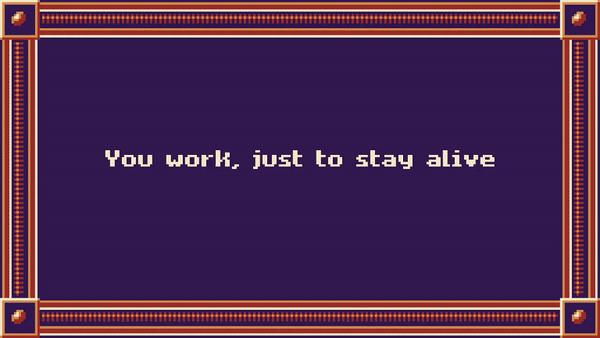It's not about PR

Mainstream Games coverage is awful. Conversations tend to revolve around the same games for weeks, or even Months with no end in sight, and maybe every once in a while the discourse wheel gets interrupted by some quirky indiegame that managed to break through with the help of a seven figure budget and publisher backing.
Making smaller games in this context can be very frustrating, because you kind of know that your work is most likely going to be ignored, unless something truly strange (or awful) happens to it. Yet you still write your press releases with nice gifs and a link to a well prepared press kit and a download key, because you don’t want to hear from people that you didn’t try everything in your power to get coverage anyway. This attempt, however well prepared it is, will most likely still be ignored and the most likely reaction you’ll get from a journalist is them letting out an exhausted sigh as they see their number of unread emails increase.
If I allow myself to be cynical for a moment, I think the biggest contribution of smaller games to the videogame landscape is how they manage to completely ruin the email inbox of every games journalist out there.
All of this is a deeply frustrating experience for everyone involved and the worst of it all is that no one within it carries the blame for it, really.
There are material reasons why things are so awful. Videogame websites are under constant pressure to reach as many clicks as possible. Freelance writers are only really able to sell pieces about whatever games are currently popular. Journalists are completely overwhelmed by coverage requests, while also having to play games that are too long in too short of a timeframe, just to be able to write a review about their experience with it.
On the other hand you have game developers, who are constantly under the pressure of falling into poverty and are desperate for any kind of attention, filled to the brim with neoliberal brainworms about how they too can become rich, if only they work hard enough and follow all of the rules.
No wonder that everyone starts yelling at each other, once someone decides to publicly air their frustrations with the whole experience.
You get Journalists that are trying to explain their jobs to people. Developers who are commercially successful turn around and talk about how you’re more likely to get coverage, when you send out your email on a Monday (some also say Tuesday) and include a gif of your game within it. Some others say that getting coverage really didn’t do all that much in terms of increasing the number of downloads and sold copies, while completely ignoring that even a relatively insignificant amount can make a huge difference, when you’re basically not selling anything.
However since this is one of those issues that just won’t be solved via yelling at each other on twitter, nothing really changes and after a day or two, the discourse wheel takes another spin and we start yelling about something else.
My personal frustration with these kinds of discussions (and the games media side of it specifically) is how you constantly get barraged by pieces and conversations about how videogames should be “more”, or “better”, or how they are all kind of the same, when there are games out there that are actively trying to do something different that are being ignored. I get that there are economic pressures that make covering these games difficult, but the same goes for the people who are making them. The fact is that the process of making smaller and more alternative games is about as lucrative as talking about them. And yet I still believe we need more of both, because as much as I understand that the underlying problems behind all of this (it’s capitalism, as always) can’t be solved, just by having some regular, small games coverage on mainstream sites, I do still believe that having this kind of coverage can help demonstrate the possibility that things can indeed be different, instead of just repeating “well, that’s just the economic reality we live in.” over and over again.
This isn't about me wanting free PR from games media. It's about wanting for mainstream games media to try harder in reflecting the reality of what videogames already are, because I geniuinly believe it will lead to much more interesting conversations.